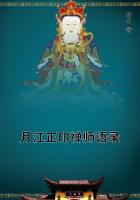The next step to be taken was the capture of the castle of Chagres, which guarded the mouth of the river of that name, up which river the buccaneers would be compelled to transport their troops and provisions for the attack upon the city of Panama.
This adventure was undertaken by four hundred picked men under command of Captain Morgan himself.
The castle of Chagres, known as San Lorenzo by the Spaniards, stood upon the top of an abrupt rock at the mouth of the river, and was one of the strongest fortresses for its size in all of the West Indies. This stronghold Morgan must have if he ever hoped to win Panama.
The attack of the castle and the defense of it were equally fierce, bloody, and desperate. Again and again the buccaneers assaulted, and again and again they were beaten back. So the morning came, and it seemed as though the pirates had been baffled this time. But just at this juncture the thatch of palm leaves on the roofs of some of the buildings inside the fortifications took fire, a conflagration followed, which caused the explosion of one of the magazines, and in the paralysis of terror that followed, the pirates forced their way into the fortifications, and the castle was won. Most of the Spaniards flung themselves from the castle walls into the river or upon the rocks beneath, preferring death to capture and possible torture;many who were left were put to the sword, and some few were spared and held as prisoners.
So fell the castle of Chagres, and nothing now lay between the buccaneers and the city of Panama but the intervening and trackless forests.
And now the name of the town whose doom was sealed was no secret.
Up the river of Chagres went Capt. Henry Morgan and twelve hundred men, packed closely in their canoes; they never stopped, saving now and then to rest their stiffened legs, until they had come to a place known as Cruz de San Juan Gallego, where they were compelled to leave their boats on account of the shallowness of the water.
Leaving a guard of one hundred and sixty men to protect their boats as a place of refuge in case they should be worsted before Panama, they turned and plunged into the wilderness before them.
There a more powerful foe awaited them than a host of Spaniards with match, powder, and lead--starvation. They met but little or no opposition in their progress; but wherever they turned they found every fiber of meat, every grain of maize, every ounce of bread or meal, swept away or destroyed utterly before them. Even when the buccaneers had successfully overcome an ambuscade or an attack, and had sent the Spaniards flying, the fugitives took the time to strip their dead comrades of every grain of food in their leathern sacks, leaving nothing but the empty bags.
Says the narrator of these events, himself one of the expedition, "They afterward fell to eating those leathern bags, as affording something to the ferment of their stomachs."Ten days they struggled through this bitter privation, doggedly forcing their way onward, faint with hunger and haggard with weakness and fever. Then, from the high hill and over the tops of the forest trees, they saw the steeples of Panama, and nothing remained between them and their goal but the fighting of four Spaniards to every one of them--a ****** thing which they had done over and over again.
Down they poured upon Panama, and out came the Spaniards to meet them; four hundred horse, two thousand five hundred foot, and two thousand wild bulls which had been herded together to be driven over the buccaneers so that their ranks might be disordered and broken. The buccaneers were only eight hundred strong; the others had either fallen in battle or had dropped along the dreary pathway through the wilderness; but in the space of two hours the Spaniards were flying madly over the plain, minus six hundred who lay dead or dying behind them.
As for the bulls, as many of them as were shot served as food there and then for the half-famished pirates, for the buccaneers were never more at home than in the slaughter of cattle.
Then they marched toward the city. Three hours' more fighting and they were in the streets, howling, yelling, plundering, gorging, dram- drinking, and giving full vent to all the vile and nameless lusts that burned in their hearts like a hell of fire.
And now followed the usual sequence of events--rapine, cruelty, and extortion; only this time there was no town to ransom, for Morgan had given orders that it should be destroyed. The torch was set to it, and Panama, one of the greatest cities in the New World, was swept from the face of the earth. Why the deed was done, no man but Morgan could tell. Perhaps it was that all the secret hiding places for treasure might be brought to light; but whatever the reason was, it lay hidden in the breast of the great buccaneer himself. For three weeks Morgan and his men abode in this dreadful place; and they marched away with ONE HUNDRED ANDSEVENTY-FIVE beasts of burden loaded with treasures of gold and silver and jewels, besides great quantities of merchandise, and six hundred prisoners held for ransom.
Whatever became of all that vast wealth, and what it amounted to, no man but Morgan ever knew, for when a division was made it was found that there was only TWO HUNDRED PIECES OF EIGHT TO EACHMAN.
When this dividend was declared a howl of execration went up, under which even Capt. Henry Morgan quailed. At night he and four other commanders slipped their cables and ran out to sea, and it was said that these divided the greater part of the booty among themselves. But the wealth plundered at Panama could hardly have fallen short of a million and a half of dollars.















